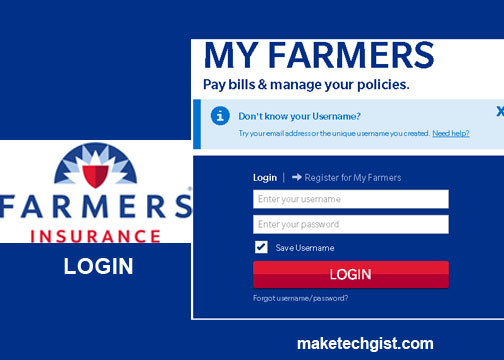You take a great deal of time tidying up after other people. You truly understand the best practices for handling a significant cleanup, whether clearing debris from a burned-out structure, removing a fallen tree, or dealing with hurricane damage. However, you might not be as knowledgeable about small-company insurance and the kinds of coverage you want, especially for debris removal.

This article can assist you in locating insurance coverage for debris removal that is as different as your company. By shielding you against typical hazards, this coverage can help you keep doing excellent work for your clients.
What is Debris Removal Insurance?
A property insurance policy’s debris removal insurance clause pays for expenses incurred in cleaning up after property damage. Debris from an insured risk, such as twisted metal from a building fire, is usually the only debris covered by policies with a debris disposal clause.
How Does Debris Removal Insurance Work?
Debris removal insurance plans sometimes cap the maximum amount of reimbursement an insured policyholder can get for debris removal expenses. Plans usually cover debris removal as standard, although the policyholder can frequently purchase additional coverage. The removal of hazardous items that might cover the property but might not include pollutants may also fall within the policy’s provisions.
The costs of clearing the debris and cleaning up after a disaster are not included in the value of the damaged property; rather, they are additional to it. This is one of the several expenses associated with restoring and replacing property after destruction or damage. Therefore, while setting up the coverage initially, it is common to forget the effect on the overall amount of the loss and the coverage limitations on these expenditures in most conventional home insurance plans.
Insurance companies may provide coverage for debris removal as an add-on rather than as a component of standard property insurance. For a covered incident, coverage limitations may be capped at a proportion of the insurer’s responsibility, like 25%. Unless otherwise specified in policy declarations, the homeowner is required to pay the policy deductible out of pocket.
There can be a deadline set by insurers for filing claims related to debris removal, like 180 days following the date of loss. It is most likely sufficient to report the costs, not to incur them, within that time frame. This condition should be met by a contractor’s estimate, and it’s crucial to have the entire sum in writing to give to the insurance.
What Types of Insurance Do Debris Removal Businesses Need?
It might be beneficial for you to talk with your broker about several insurance options if you own a debris removal company. These would consist of:
Commercial General Liability
It might be challenging to forecast the state of a workplace in this field of business. Your company can be named in a lawsuit if a subcontractor or employee causes damage to a neighbor’s property or injures a third party while performing their work duties. In these kinds of circumstances, commercial general liability might be able to help with judgment expenses and attorney fees.
Commercial Auto Insurance
If you own a debris removal firm, you likely drive in corporate vehicles regularly. If you or a staff member are involved in an accident while traveling, personal insurance policies might not provide coverage. Because of this, you might want to discuss commercial auto insurance as an additional coverage option with your broker.
Commercial Property Insurance
Industrial-strength materials and specialized equipment are frequently used by debris removal companies to complete tasks. If your company’s property is ever damaged by a covered loss, you may be able to get reimbursement thanks to commercial property insurance.
Factors That Affect the Cost of Debris Removal Insurance
- The age of the building.
- Closeness to other structures (i.e., equipment mobility).
- Structure type (steel frame will cost more to cut, clean, and remove than wood frame).
- The presence and kind of dangerous substances.
One recommendation is to get a cost estimate from a nearby demolition/debris removal contractor based on the premise of a total loss, even though no baseline can be used to estimate the pre-loss cost of debris removal. Based on this estimate, a request for an increase in the coverage sub-limit and overall location limit may be made as appropriate.
How Much Does Debris Removal Insurance Cost?
The cost of your company’s debris removal insurance coverage varies according to the risks it encounters, including:
- The kinds of tasks you perform.
- Where your projects are situated.
- Our workers’ job types and your paycheck.
- How many and what kinds of cars do you drive to work?
For contractors, general liability insurance can cost an average of $70 per year. The cost will rise with each new insurance policy acquired. Get a personalized quote from an experienced agent based on your unique requirements.
Debris Removal Insurance Requirements
Because debris removal operations carry a risk of injury and property damage, insurance is almost always necessary. You may require insurance to:
- Obtain a project going: Clients and local governments may ask to see proof of current insurance, mainly workers’ compensation or general liability.
- Employ people: Workers’ compensation is required in most states.
- Fix or replace any belongings you may own or rent: Safeguard your supplies, machinery, and even the property you own or rent.
Who Needs Debris Removal Coverage?
Which businesses would require these kinds of insurance coverages?
- Building Firms.
- Companies that Clean Up Debris.
- Companies that Remove Debris.
- Contractors that Remove Asbestos.
- General Contractors.
- Companies that Clean Up Pollution.
Make sure you get the right coverage if you run a connected business or provide debris removal services to the construction sector.
Final Thoughts
Debris removal may be covered in part by home insurance policies, but it may not be. Alternatively, some homeowners would have to purchase extra coverage for clearing debris. Insurance companies have the authority to restrict the scope of coverage, require that claims be submitted within a given time (e.g., 180 days), and require the inclusion of a contractor’s estimate.





